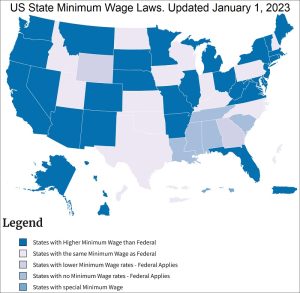In the ever-evolving landscape of technology, artificial intelligence (AI) has taken centre stage, raising intriguing questions about its transformative potential in the world of work. Among the sectors bracing for AI’s impact is marketing, particularly content marketing. With the advent of natural language processing (NLP) and the introduction of ChatGPT, an AI language model, experts are now pondering the future of content writing and its intricate relationship with AI.
The pressing question on everyone’s minds is whether AI represents an unprecedented opportunity or a looming threat.
The Ascendancy of AI in Content Writing
AI-powered writing tools have witnessed remarkable progress in recent years. The emergence of software capable of grammar checks, tone analysis, and contextual interpretation has become an integral part of a writer’s toolkit. However, the introduction of ChatGPT in November 2022 has sparked debates about the true potential of AI in content creation.
Today, these AI-powered tools possess the capacity to revolutionise the process of content creation. Armed with a mere writing prompt, these models can effortlessly generate blog posts, news articles, and product descriptions in a matter of seconds.
The allure of this technology is evident. Business owners can now populate their websites with an infinite number of articles without the need for an extensive writing staff. However, the consequences of overreliance on AI-generated content have become apparent, with a recent study revealing a prevalence of falsehoods and errors on websites utilizing this technology.
The Indispensability of Professional Writers
While AI can indeed aid in content generation, reputable websites will continue to place their trust in professional writers. Undeniably, AI-powered writing tools represent a remarkable leap forward, but creating valuable, reliable, and captivating content demands the human touch. Only a talented writer possesses the ability to craft a piece that genuinely resonates with readers.
This truth becomes especially apparent in topical and opinion-driven pieces. In such instances, readers value the author’s name as much as the content itself. We appreciate the expertise and experience of individuals in the know. For example, when seeking the latest rugby developments and match analysis, we prefer the insights of players and authorities in the field rather than an AI-generated response. A website I frequently read, RugbyPass, has gathered a large number of ex-pros and writers to create authentic rugby content on their website.
A Harmonious Coexistence on the Horizon?
So, where does the future lie? Despite sensational headlines prophesying an impending era where 90% of content will be AI-generated, it appears that a harmonious coexistence is the more likely outcome.
AI-powered tools hold immense potential in enhancing efficiency and conserving time and resources. However, we cannot depend on AI to furnish factually accurate information, deliver authoritative perspectives, or establish a profound human connection.
While AI will undoubtedly streamline the writing process, professional writers will remain indispensable to the future of content writing. Their mastery of language, creativity, and nuanced understanding of various subjects will continue to elevate content creation to new heights, ensuring a symbiotic relationship between humans and AI.














